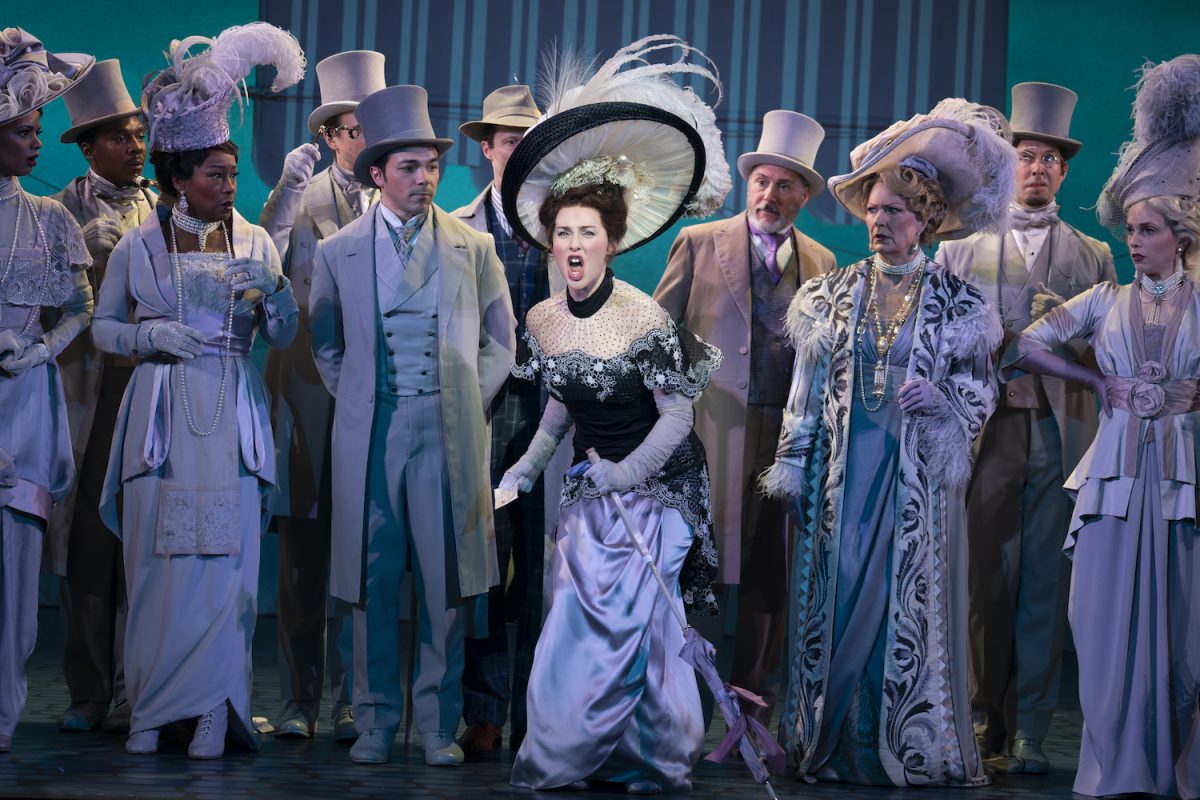When I saw that My Fair Lady would be coming to the Orpheum Theater, I knew right away I wanted to go — andI wanted to bring my friend Kayla Dawson with me. My Fair Lady is a show that Kayla introduced me to when we were teenagers, during her self-described Audrey Hepburn obsession phase. As much as I was looking forward to it, I knew it could be tricky seeing a performance, especially one that is a familiar personal favorite, with a preconceived notion. You can go in unintentionally more critical. After all, there’s an idea in your head for the show to live up to. But The Lincoln Center Theater’s production of My Fair Lady exceeded every expectation I had. This classic musical stands the test of time.
My Fair Lady, based on the 1913 George Bernard Shaw play Pygmalion, became part of the classic film lexicon in 1964. I have to say, I prefer the stage version. Director Bartlett Sher offers up a new take on the familiar romantic musical, or at least, a new take for those unfamiliar with the original source material. Pygmalion is less of a romance and more of a critique on social classism and the subjugation of women. The version of My Fair Lady I saw at The Orpheum Theater on July 26th was clearly a critique on the same. This show could easily be off-putting to modern audiences if the tone missed the appropriate tongue-in-cheek-ness, but instead, it walked the line perfectly between light-hearted Broadway musical and serious social assessment.
Notably — insert large spoiler alert here — the loudest comment on women’s rights happens in the last five seconds of the show. In Sher’s version, Eliza Doolittle walks offstage (“strides” is honestly a more apt description) in response to Professor Henry Higgins’ question, “Where the devil are my slippers?” This ending is true to Pygmalion, but differs from what audiences may be familiar with from the 1964 movie version. In the wake of the “Me Too” movement and the overturning of Roe v. Wade, I personally loved the changed ending. Find your own damn slippers, Henry Higgins! The change completely shifted the dynamic for Eliza’s character, allowing her to be seen as a powerful, independent woman. Having Eliza retain her autonomy makes more sense with what we see from her character throughout the musical, making for a more cohesive ending than what’s become traditional for the show.
Another way in which this production stands out is the diverse ensemble cast. Every group number was superb, from the iconic “Ascot Gavotte” to the raucous “Get Me to the Church on Time.” The extravagant costumes, designed by Catherine Zuber, silhouetted against a light background and coupled with a wonderfully paced, slow entrance of the company makes “Ascot Gavotte” stand out as a musical number saturated with dry humor and ennui. “Get Me to the Church on Time” has never been my favorite My Fair Lady scene, but last night’s performance has moved it considerably up the ranks in my book. The song was a visual feast, featuring dynamic costumes, elaborate choreography, complex set changes, and even pratfalls — all of what audiences love about Broadway can be found in this one number.

Speaking of set changes, the large moving set planned by Michael Yeargan was so intricately woven into the show that it almost felt like another cast member. Professor Higgins’ house rotated turntable-style, giving license to the cast for movement through the set and allowing the audience to see a full depiction of the life within the home. Set pieces are cleverly incorporated into the dance numbers to a point where even the changes are interesting to watch, being fit into the choreography of every scene.
For my friend and I, seeing My Fair Lady was like revisiting a dear companion and finding that they’ve grown and changed for the better. For the couple in the seat next to me, who were seeing their first-ever theatrical production, it was something entirely new. “We love it,” they gushed to me at intermission. My Fair Lady is perfect for anyone wanting to experience all the joys of live entertainment coupled with a feminist message that hits hard in 2022.
The Lincoln Center Theater’s production of My Fair Lady runs through July 31st at the Orpheum Theatre.
